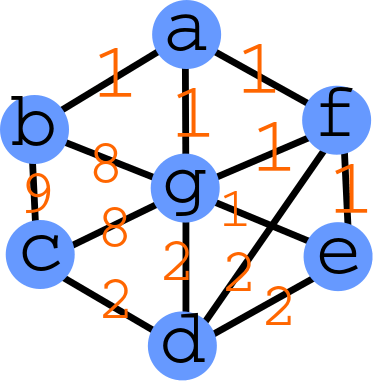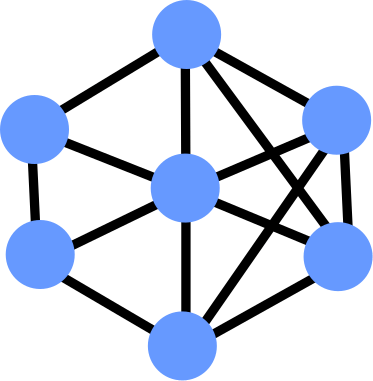What is
2^(10) - ( (10) ,(4) )
?These binary strings biject to non-negative integer solutions to
a+b+c+d+e = 148
1/(1-(x^2+x^7+x^9))?
This recurrence relation has generating function
f(x) = ( a_0 + (a_1 - 3a_0) x ) / ( 1 - 3x + 2x^2 )
a_(n+2) = 3a_(n+1) - 2a_(n)
?
20 ->18.
What is
sum_{k=0}^18 (-1)^k ((18),(k)) (18-k)^(20)?
(There's also no identity.)
O( n^(m-1) lambda^n)
where
lambda
is the largest eigenvalue and has multiplicity m.

B_{26} = \sum_{k=1}^{26} {(26),(k):}}?
a_n = (1+n)5^n
?It satisfies a_0 = 1 and a_1 = 10 and the recurrence relation
a_n = 10 a_{n-1}-25a_{n-2}
"As a base case a single vertex is 2-colorable. Suppose that every tree with k vertices is 2-colorable. Let T be a tree with k+1 vertices. Then T must have a degree 1 vertex v attached to some vertex u. By the inductive hypothesis deleting edge {u,v} and v from T gives a 2-colorable graph. Then coloring v the color u is not colored gives a 2-coloring of T."
?
The total number of length 10 strings on {a,b,c,d} is more than this number of strings on {a,b,c,d} considered up to cyclic permutation. ( Cyclic permutation: abc ~ bca ~ cba )
What is
( 4^10 + 4 * 4^5 + 4^2 + 4*4 ) / 10?
